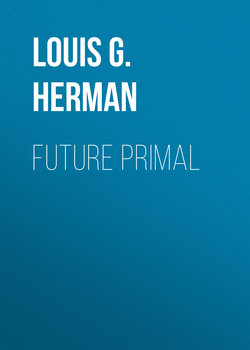Читать книгу Future Primal - Louis G. Herman - Страница 7
На сайте Литреса книга снята с продажи.
ОглавлениеFOREWORD
Since the mid-1980s, a number of leading theorists across academic disciplines have been involved in the common endeavor of articulating the outlines of what might be called a planetary civilization. These physicists, economists, poets, cosmologists, sociologists, biologists, political scientists, engineers, city planners, farmers, religious scholars, philosophers, and ecologists all share the assumption that our human societies are undergoing what might prove to be the largest shift of structure since we first settled into villages at the start of the Neolithic era. The primary motivation for this revisioning is the realization that the ecological and social devastation taking place around the planet will only continue until some powerful new ideas take hold in human consciousness. The significance of Louis Herman’s Future Primal can best be appreciated in terms of this ongoing creative project.
My sense is that, in a number of fields, remarkable progress has been achieved. Some of the landmarks include: in economics, Herman Daly and his articulation of the theoretical foundations for economic sustainability; in technology, Janine Benyus and her recasting of industrial infrastructure as biological mimicry; in agriculture, Wes Jackson and his new paradigm of a perennial polyculture; in physics, Fritjof Capra and his deconstruction of scientism; in human-earth relations, Susan Griffin and her work leading beyond the oppressions of dualism; in religion, Thomas Berry and his vision of the ultimate sacred community as neither humanity nor a subgroup of humanity but the entire earth community itself.
I would place the work of Louis Herman in this company of geniuses. Regularly, at conferences, however satisfied we participants were with what had been accomplished in revising physics or biology or economics, the glaring omission was politics. For years, we have keenly felt this absence of a political philosophy that would support a planetary civilization.
No longer. In Future Primal we have a work that deeply resonates with the ideas from the other architects of this new earth era. Drawing from a very wide range of ideas and sources, including contemporary political scientists, the Kalahari Bushmen, and the Axial Greek philosophers, Louis Herman has created a vision of the human being as a microcosm of the entire evolving 13.7-billion-year-old universe itself. Perhaps the best way to describe this creative synthesis is to call it a work of political cosmology. For with this new vision of politics we can begin to imagine ourselves not just as consumers, and not just as political units of a nation-state, but as cosmological beings — cosmological beings whose foundations are that same creativity that brought forth a time-developmental universe, and whose struggles are those same ongoing struggles of life itself to give birth to new forms of beauty.
I am convinced that Louis Herman’s Future Primal provides a cornerstone for this emerging planetary civilization.
— BRIAN THOMAS SWIMME, professor of evolutionary cosmology at the California Institute of Integral Studies (CIIS) and coauthor with Thomas Berry of The Universe Story
